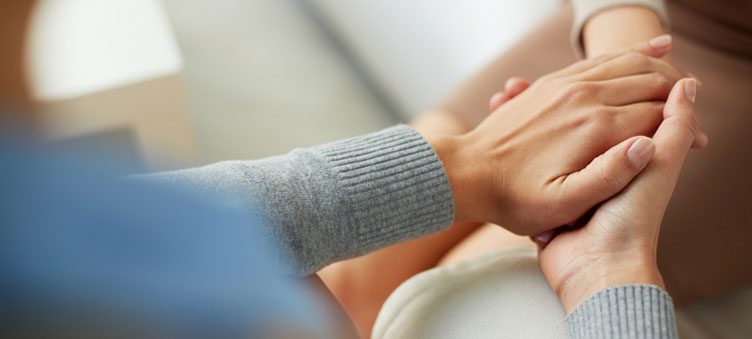Lots of things in life “take a village.” Although originally a Nigerian proverb about children, it can certainly apply to cancer treatment as well, the difference being with cancer, the village is often stunned, confused, hurting, and even angry.
Today I write for those of you who are going through cancer with your loved ones, and I do mean “going through.” The “c” word strikes a crushing blow to you, too, because:
- You have no clue what to do.
- You’re scared for them and with them.
- You don’t want to do anything wrong that would make it harder.
- You’re trying to put on a brave face despite your fears.
- You can’t imagine life without them.
And you’re wondering:
- What’s going to happen now? And for how long?
- How much should you say or not say? Or do or not do?
- Can you share your true feelings or should you filter everything first?
- Is there anything, ANYTHING, you can do to help?
- Why, God why?
In 8 Steps to Getting Real with Cancer, I write about the support team and suggest a basic mindset about EMPOWERING the cancer patient to lead his or her own battle, while you for your part make meaningful and practical contributions to the process.
How do you begin to empower your loved ones? Here are a few starting points:
- Give them space to get their bearings and recover from the shock.
- Respect their right to choose how they want to proceed. As much as you might feel a certain path is best, please don’t pressure them to see it your way. Encourage and provide feedback when invited or kindly ask if they would like to hear some of your thoughts, but do not argue or debate. When I was first diagnosed, my well-meaning husband immediately told me what he thought I should do. But, as much as I love him, I gently asked him not to do that. I said,”If you tell me what you think I should do, and I feel pressured to do it, what if that turns out to be the wrong thing for me? Or worse, disastrous? I don’t want that for you or me. Or if I don’t do what you think I should do, then we would feel awkward, and I don’t want that either.” I knew he wanted to be my hero, but what I really needed was his respect and validation that I could win the war.
- Be patient, wait, listen, and watch for cues from them or their family on how you can help and support.
- Express confidence in them either verbally or in writing.
- If you believe in prayer, let them know you’re praying. I loved it when people told me they were praying for me. If the patient doesn’t believe as you do, they will most likely still appreciate the care and concern you’re showing.
Today my niece shared a friend’s story. Before the friend’s bilateral mastectomy, she told her husband she wanted him but no one else there when, upon waking, she would learn of the pathology results. To that I say, good for her! Why?
- She learned ahead of time how events would unfold.
- She had the self-awareness to discern her own wishes, and
- She had the courage to advocate for herself and communicate authentically.
And that, my friends, is how it’s done.
My niece said that the husband was glad to know what to do and how he could best help her. I call that a “win-win.”
Cancer patients need to know most of all that you believe in them, that you will respect their requests, and that you will respond as best you can.
After all, the goal is clear:
Today’s empowered patients are tomorrow’s survivors!
— by Marianne McDonough
Copyright © 2016 Marianne McDonough

